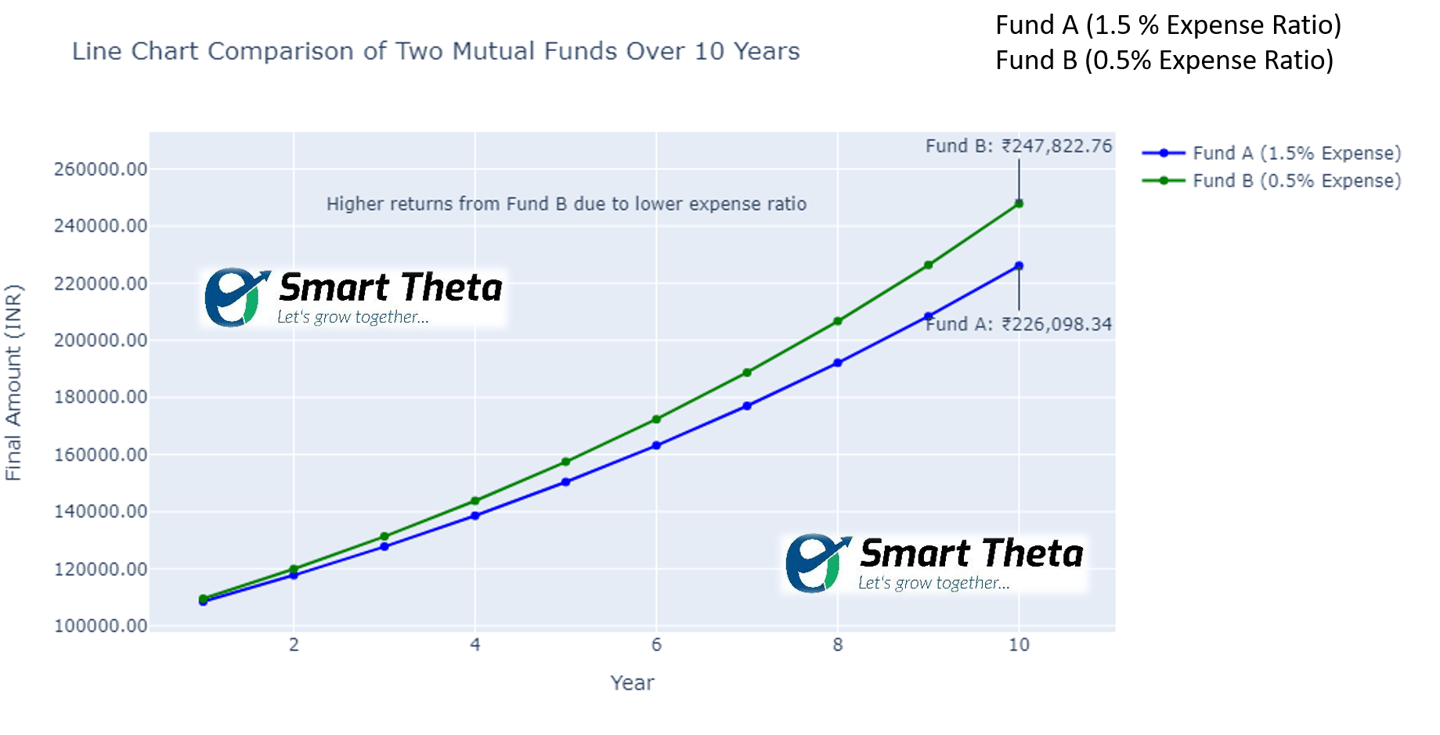Selecting Mutual Fund based on Expense Ratio
The Role of Expense Ratio and Returns in selecting the right mutual funds
Visshnu P M
4/27/20242 min read


Selecting the Right Mutual Fund: The Role of Expense Ratio and Returns
When choosing a mutual fund, it's crucial to consider both the expense ratio and the expected returns. The expense ratio is a measure of the costs associated with managing and operating the fund, expressed as a percentage of the fund's assets. A lower expense ratio means fewer costs are deducted from the fund's returns, potentially leading to higher net gains for investors.
Key Considerations:
1. Understand Expense Ratios:
- The expense ratio includes management fees, administrative fees, and other operational costs.
- Impact: Even small differences in expense ratios can lead to significant variations in net returns over time.
2. Analyze Gross vs. Net Returns:
- Gross Returns: The return on an investment before any expenses are deducted.
- Net Returns: What investors actually earn after expenses. Always focus on net returns as they reflect the true profit from your investment.
3. Long-term Effects:
- Over the long term, funds with lower expense ratios generally outperform those with higher expenses, assuming similar gross returns. This is because lower expenses allow more of the fund's gross returns to compound over time.
4. Example Comparison:
- Consider two hypothetical funds:
- Fund A: Expense ratio of 1.5%
- Fund B: Expense ratio of 0.5%
- If both funds offer a gross annual return of 10%, Fund B, with its lower expense ratio, will accumulate more wealth over time due to lower deducted costs.
Let us say you invested lumpsum INR 1,00,000 in two Mutual Funds, Fund A and Fund B respectively, if both funds give 10% return for the next 10 years, then the
· Gross amount : 2,59,374.25
· Net Amount Fund A (Expense Ratio [1.5%]): 2,26,098 (-9% from Gross Returns)
· Net Amount Fund B (Expense Ratio [0.5%]):2,47,822 (-5% from Gross Returns)
Clearly Fund B with low expense ratio has outperformed Fund A with higher expense ratio and similar CAGR
Take Away
When selecting a mutual fund, compare the projected net returns after expenses. Choose a fund with a manageable expense ratio without compromising on the quality and potential of the fund manager and the investment strategy. Remember, a lower expense ratio can significantly enhance your investment's growth potential, especially in the long-term investment horizon.




